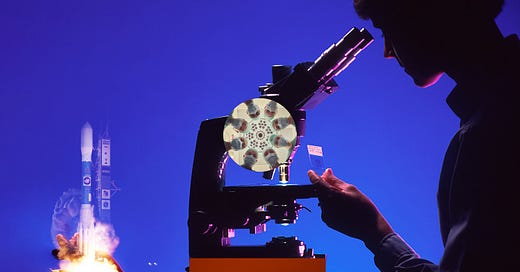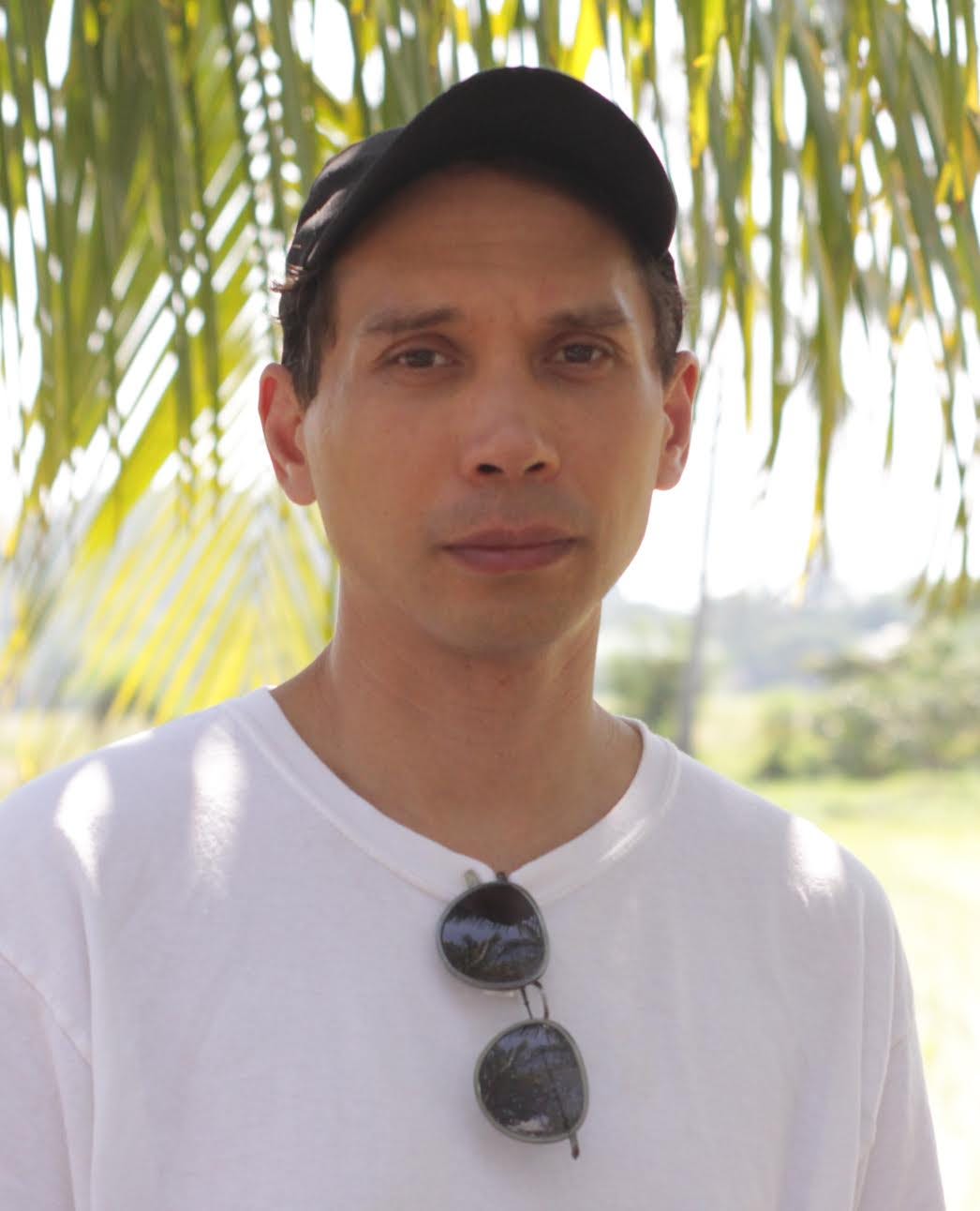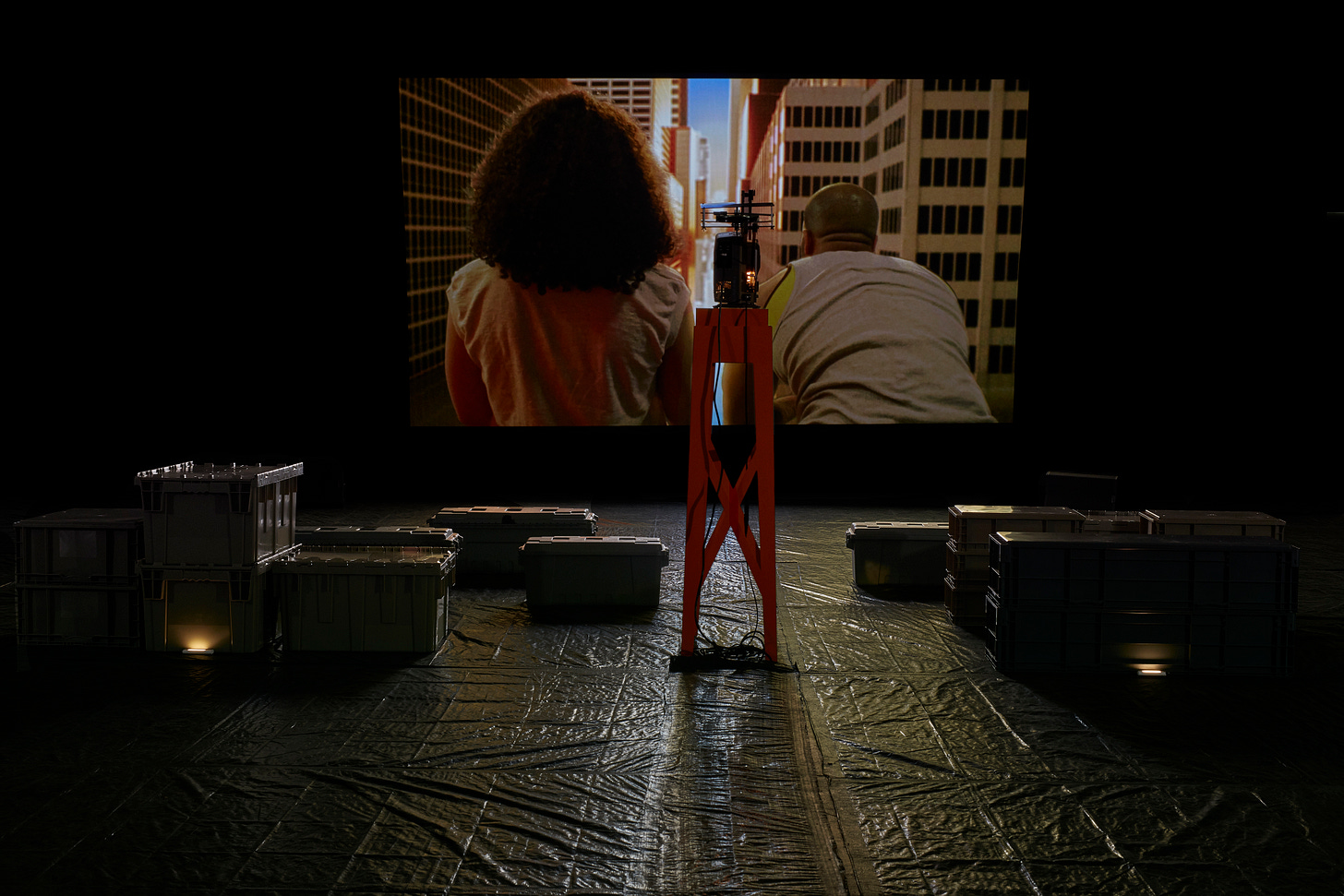Herb Sundays 89: Josh Kline
The prophetic artist working "Sunday night, channeling that clandestine, turbulent story from another time."
Herb Sundays 89: Josh Kline (Apple, Spotify, Tidal, Amazon). Art by Michael Cina. Photos from NCI.
“I gave up on normal business hours in 2020. I've never been a morning person and now I wake up late and write late at night when things are quiet and all the email-people are unconscious and unable to type. Right now, I'm working on screenplays for science fiction films and listening to a lot of moody, atmospheric dance music. This playlist could be the soundtrack for a sci-fi movie set at night where the protagonist spends the whole film running. Or it could be the soundtrack for a screenwriter up late on a Sunday night channeling that clandestine, turbulent story from another time.” - Josh Kline
Here’s Josh’s Bio: Josh Kline (b. 1979, Philadelphia, USA) is currently the subject of a museum survey at the Whitney Museum of American Art in New York. Kline is best known for creating immersive installations–using video, sculpture, photography, and design–that question how emergent technologies are being used to change human life in the 21st Century. He often utilizes the technologies, practices, and forms he scrutinizes—digitization, data collection, image manipulation, 3D-printing, commercial and political advertising, productivity-enhancing substances—aiming them back at themselves. Some of his most well-known videos use early deep fake software to speculate on the meaning of truth in a time of post-truth propaganda. At its core, Kline’s practice is focused on work and class, exploring how today’s most urgent social and political issues—climate change, automation, disease, and the weakening of democracy—impact the people who make up the labor force."
Josh Kline has sort of an eerie prescience for what’s next. Walking his Whitney survey last month, Josh Kline: Project for a New American Century (which closes Aug 13th!) I recognized fragments and images of his work that had been fed to me as smaller chunks over the last decade as internet flotsam, which would probably suit Kline just fine. The show, curated by Christopher Y. Lew, is one of the more "rent-free” mindworms I’ve experienced in recent memory.
When you take in Kline’s work in person, which reveals the now and future truths we are heading toward in terms of climate change and labor, you are simultaneously drawn in amidst it all. Kline’s work is righteous and moral, but it is also incredibly seductive. Lest you forget he was a film student, not an art school grad, he uses the language of marketing and of Hollywood, to get his message across but does so on fair terms. It is both sublimely sincere and also widely accessible, which would be dangerous for lesser talents.
I sensed Herb territory when he teamed up with Ghostly affiliate Galcher Lustwerk (Herb 59) (shoutout Eliza Ryan) and he more than delivered with this dreamy, solemn electronic mix. Sound is indeed a big part of Kline's work. Each room of his Whitney show has the feeling of a Disney dark ride in many ways (a compliment if you know me), where sonic texture, light, and feel are paramount. The whirr of a film projector, the airless chatter of advertising, it’s almost pleasurable before the stories bear down on you. I am excited to see what he does with a feature-length film, which apparently is in the works.
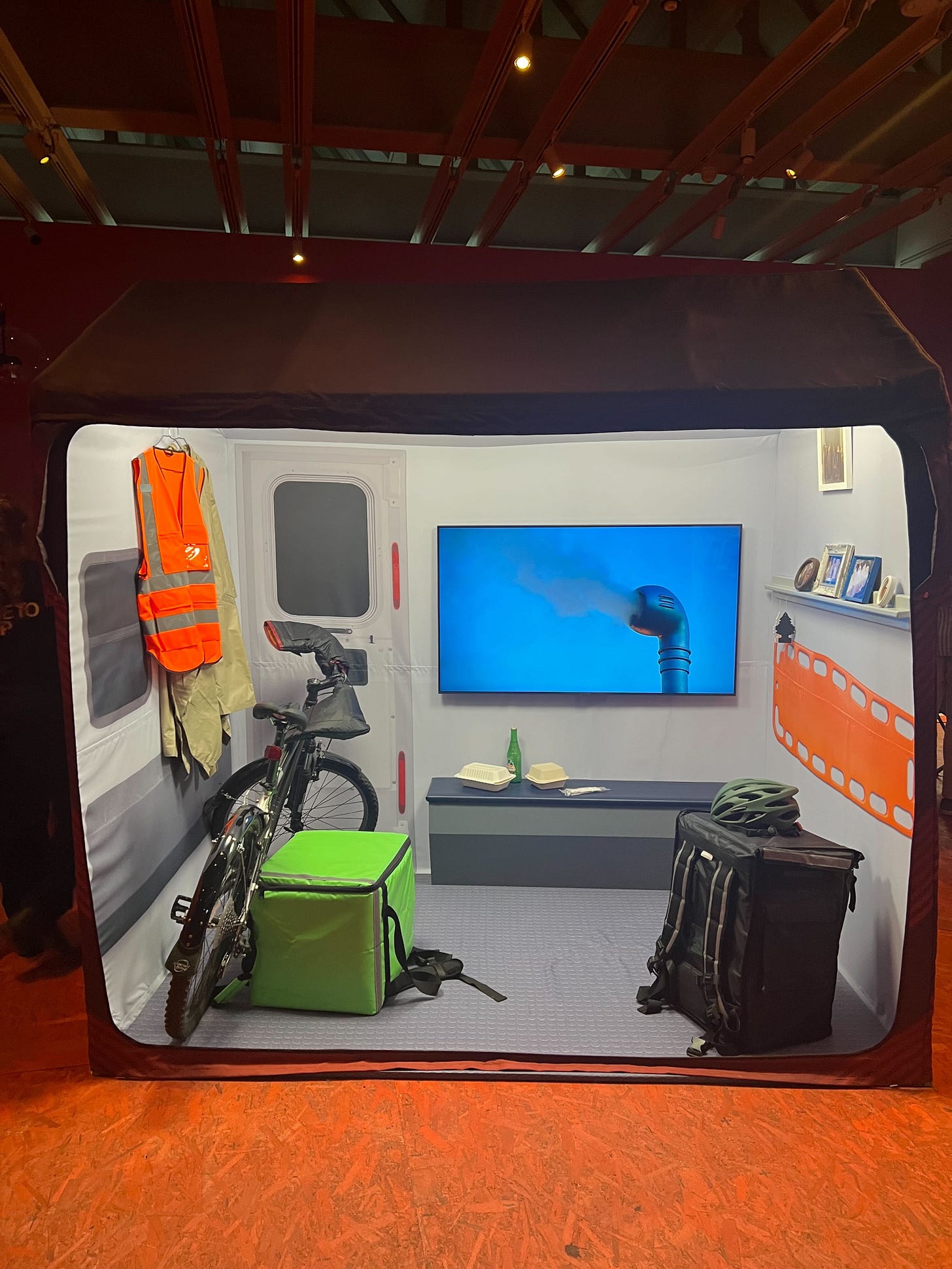
Kline was interviewed this week for Art In America by HerbFriend Andy Battaglia:
AB: Your new Personal Responsibility works—sculptural installations set in the aftermath of imaginary climate disasters, with videos of people recounting tales of horror and forced migration—have been disturbingly on-point in recent weeks, with ongoing fires, flooding, and so forth. How has it been for you to see reality match your imaginings of such catastrophes in real time?
JK: The Personal Responsibility works are all based on extensive research into firsthand accounts from survivors of climate disasters in the US over the last two decades, most especially hurricanes Katrina, Sandy, and Harvey, and the California wildfires. Sandy was a very personal wake-up call for me. Seeing the lights go out in Lower Manhattan for two weeks in 2012—in supposedly the richest, most-powerful nation on Earth—revealed just how fragile our society is. The pandemic was another, much larger, lesson in disruption. I’ve come to see Covid as a dry run for the kind of disruption and dislocation we will experience as the climate crisis accelerates. Intellectually I know things are going to get really strange, but I was still totally shocked when the sky over New York turned yellow in June.
Like other artists working to capture how we live now, Kline deliberately timestamps the moment, seeking to capture it, or as he told Zoë Lescaze at the NYT “I’m not a person who believes in this myth of a timeless art…I think that’s propaganda.” One of my favorite Klineworks which shows this intent is Skittles (2014) which boils down both aspirant lifestyles and dangerous productivity in the canonical vessel of health in the newish millennium, the plastic, pre-made juice bottle. The squared-off potions are a contemporary Coke bottle or a shape that implies a cure-all for the lives we lead. This work is immediately evocative of the ‘10s with its signifiers but even more relevant now that we have been fully engulfed in curated lifestyle as image. The same Times piece continues:
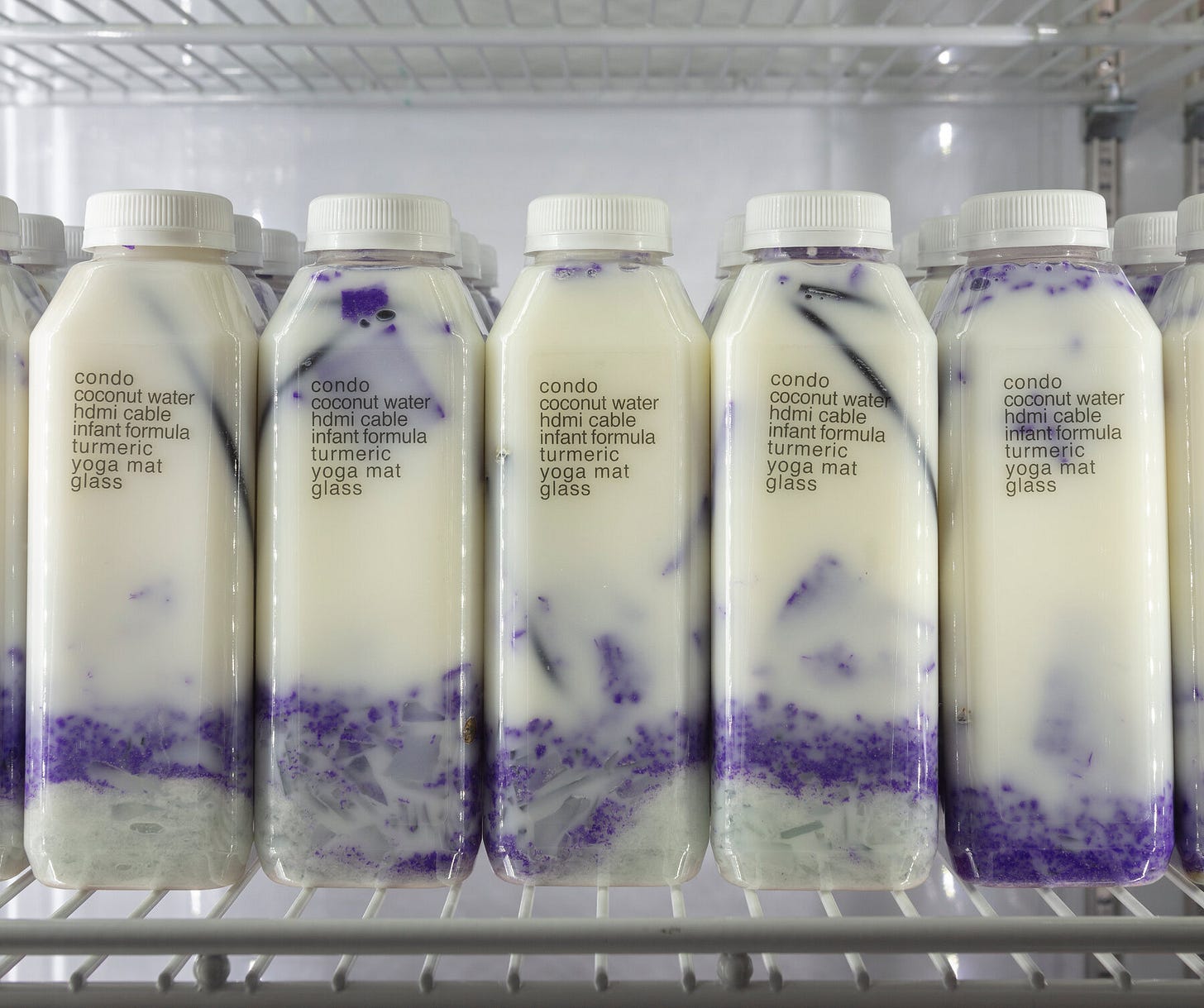
“Inside an industrial refrigerator, rows of smoothies represent lifestyles in liquid form. “Condo” is a creamy white concoction of coconut water, HDMI cable, infant formula, turmeric and hunks of purple yoga mat. “Williamsburg” contains kombucha, quinoa, American Apparel underwear and blended credit cards, among other ingredients. The Museum of Modern Art acquired the work two years later but, in 2019, when “Skittles” was included in a group show, some ingredients had already become difficult to source. (The conservation team realized the museum needed to stockpile materials like Google Glass if it was going to reinstall the piece 50 or 150 years from now.) Beyond remarking on class and technology, “Skittles” underscores capitalism’s dependence on cycles of obsolescence. While some artists make site-specific art, Kline instead set out to make work that was time-specific: projects that preserve the desires, ethics and frailties of the era in which they were made.”
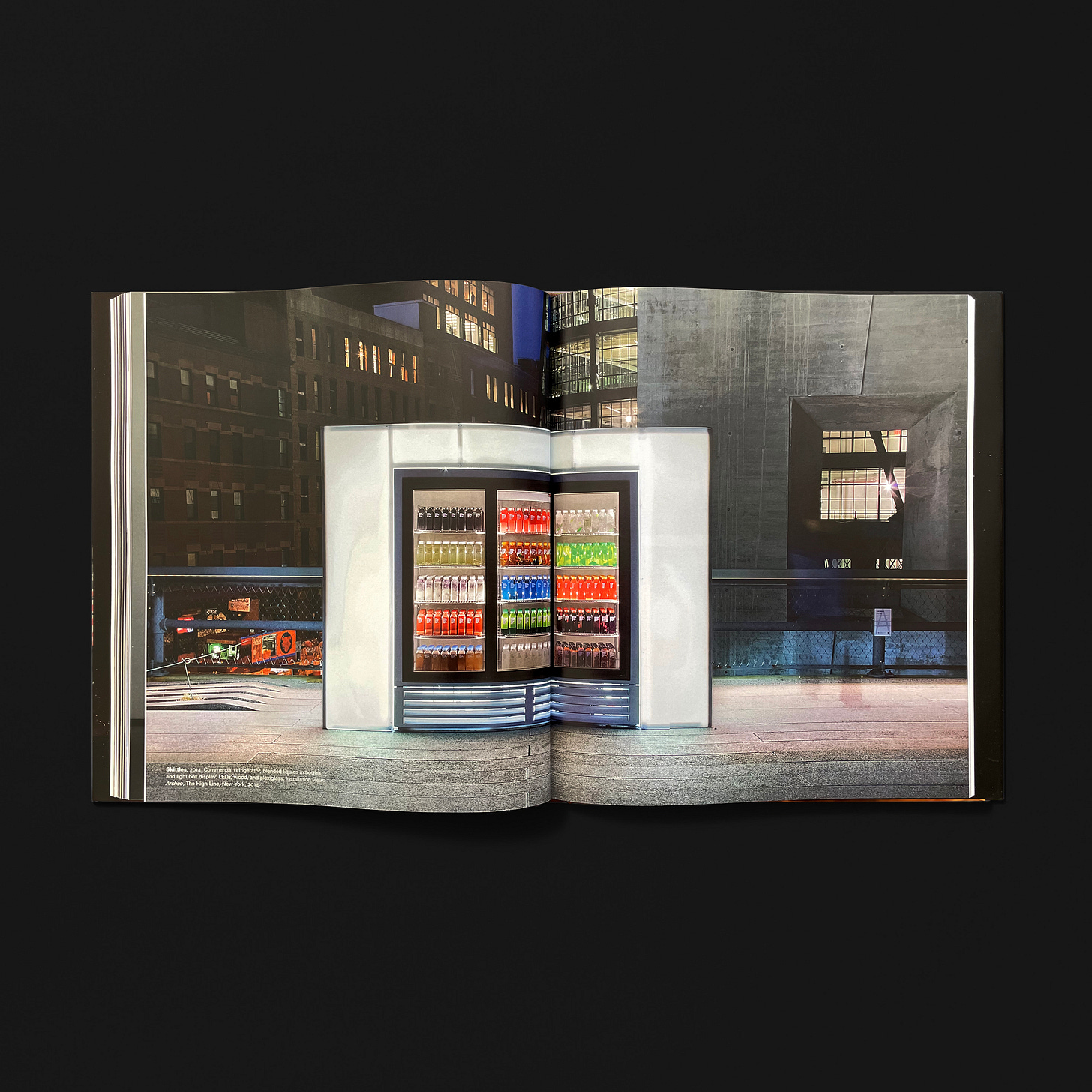
It’s this lack of obliqueness, without tipping into maudlin, that makes Kline’s work so remarkable. It is crystal clear sci-fi (Kline references Octavia E. Butler, Ursula K. Le Guin, etc.) but is deeply grounded in the human now. Kline’s apocalypse isn't the running and the screaming kind, it's usually set the month or year after. In Adaptation (2022), a short film (the one scored by Galcher Lustwerk, who also appears on the playlist) the tone is oddly comforting, just a bit sad. The general conceit of the piece is that these workers, unable to leave the city or just the ones who need the work most, are doing some sort of clean-up or recon in a flooded Gotham. After hosing each other’s wetsuits down of contaminants after a day of work, they sit and have a beer and hang. The closest emotional comparison I could draw is the crew of the spaceship Nostromo in Alien (1979), laughing and bantering before all hell breaks loose, except this shows that will happen after the carnage too. The excellent doc Memory: The Origins of Alien (2020) reminded me that Alien is also about class. Who has to do the dirty jobs? Whose bad decisions have cost the rest of us?
Kline’s message is not all doom and gloom, he intends to remind us there is still time.
“The media does a really poor job of communicating with the general public about what the climate crisis will look like in our own lives and how soon we can expect things to get bad. They also don’t do a good job at explaining what’s still possible in terms of mitigation—and the difference that can still be made today. Finding ways to make this personal and understandable is vital while there’s still a possibility of doing something.”
From The Field: Summer Bummer Edition
Art Bonus Beat:
If you can’t make Josh’s Whitney show before it closes you’ll have a chance at a solo show at LA’s MOCA in June of next year. If you do get to the Whitney any time soon, you should catch Artist Peter Burr’s Sunshine Monument (Jul 25, 2023– ?)
“For the past 14 months I've been building SUNSHINE MONUMENT - a slice of digital architecture at The Whitney Museum that waxes and wanes with every New York City sunrise and sunset. You can catch a glimpse each day as the hot globe rises and falls by visiting the Whitney website and hanging out anywhere while the time ticks away to that golden moment.”
When it comes to new music recently, I look forward to Ryan Schrieber’s What’s Good (Spotify) playlist updates which veer from pop to underground.
Ghostly fam Jeffrey Sfire brings some color to the HÖR BERLIN booth, with an acidic bombfest of dance tracks to put on when puttering around.


